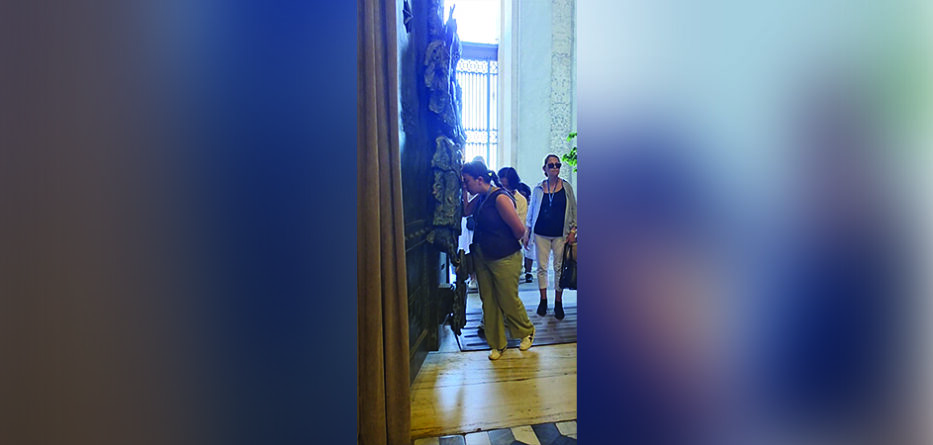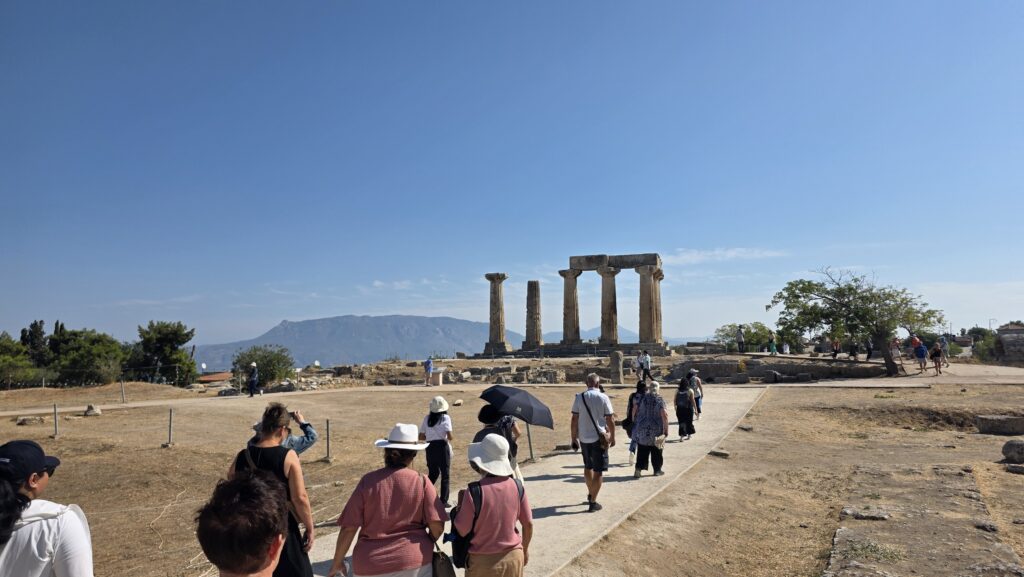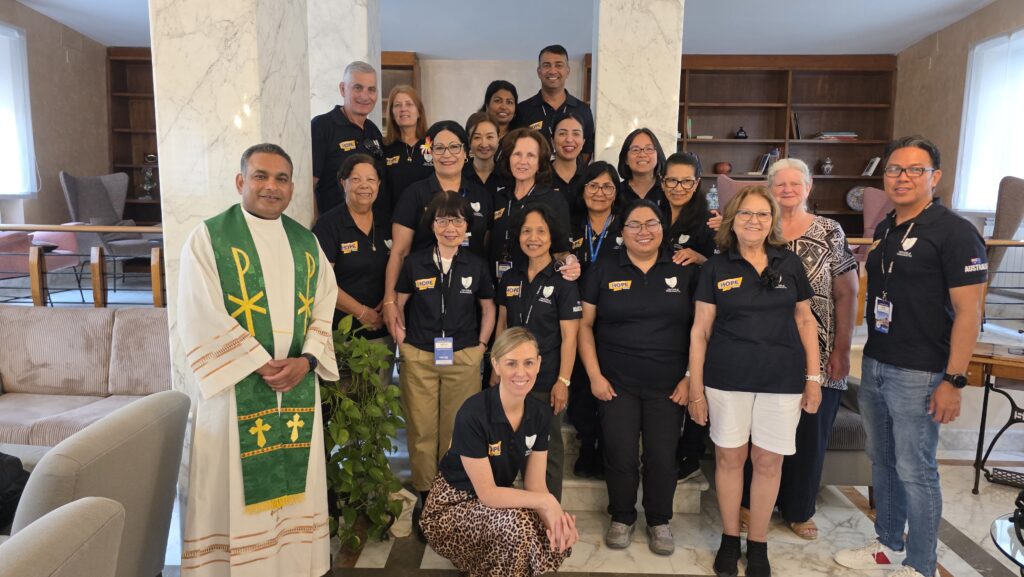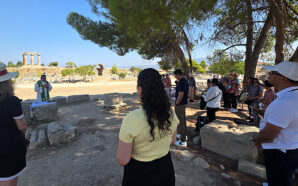From 7–25 September 2025, 21 pilgrims from around Australia journeyed in the footsteps of St Paul through Greece, Türkiye and Rome for the Jubilee Year of Hope.
Organised by the Diocese of Parramatta and led by Rachael Kama from the Diocese’s Pastoral Plan team, the pilgrims from Sydney, Bathurst and Melbourne experienced the life of the early Church – through St Paul and his companions’ lives who unwaveringly spread God’s word to Jews and Gentiles alike in an extremely challenging time when Christianity was outlawed.
Ann Boutros, a teacher at St John Vianney Primary School, Doonside, shares her reflections.
According to the University of York, the English term ‘pilgrim’ originally comes from the Latin word peregrinus , which means a foreigner, a stranger, someone on a journey, or a temporary resident. It’s also described as a traveller making a brief journey to a particular place.
On my first pilgrimage, I expected nothing less.
The fast pace and the temporary staying at particular places made the word ‘pilgrim’ live up to its name. We quite literally were going through field, country and even seas!
I came into this pilgrimage with no expectation except with the desire to be on a journey. All I knew was that it’s a Jubilee year, and I must attend a pilgrimage. Who knows what the future brings? I have never been on a pilgrimage and I didn’t know anyone who was registered to go, and in so many ways, the Lord was preparing my heart to be open to what He was about to accomplish.
As humans in a broken world, it is innate to want to be in control, to want to know everything and to be the decision-maker. All of that gets thwarted when you are on pilgrimage. From following directions of a tour guide or pilgrim leader, having set times for meals, having the itinerary mapped out and even changed, it’s a lot of ‘handing over control’ for any adult.
In hindsight, it was an invitation from the Lord calling us to surrender and to trust Him. Going on a pilgrimage in a jubilee year made me realise that I belong to something greater, to Someone greater. Our faith is not just something scribbled down in a book two millennia ago but something that is alive, breathing and living within us each day! And made to be shared with others.
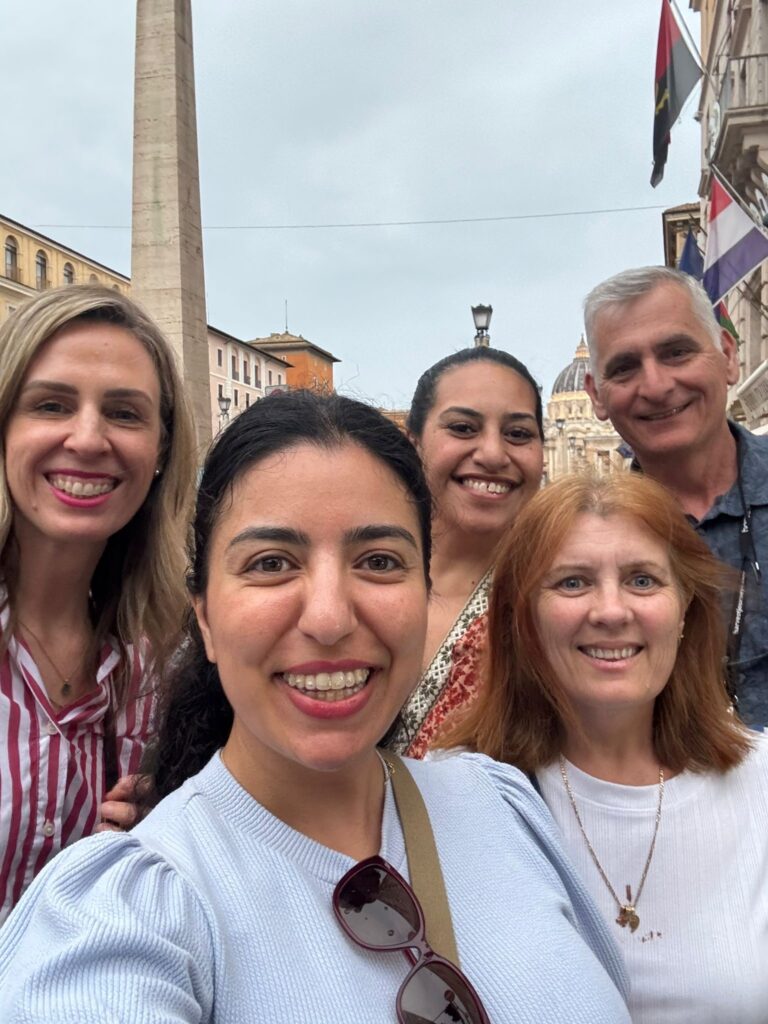
Ann Boutros (second left) with fellow pilgrims Anita Sulentic, Rachael Kama, Denise and Patrick Carroll in Rome. Image: Supplied
Not to mention, you are living with twenty other pilgrims who come from all walks of life, each with their own unique and special story to tell and somehow woven together in the beautiful fabric known as the ‘Hope Adult Pilgrimage’. From the ‘I just found out I was coming’ to the ‘we’ve been planning to come for months’ or to the ‘yeah, it looked interesting,’ each came with a hope to encounter something or Someone. A marvellous group of people who came from different cultural and social backgrounds but here together, laughing together, praying together, shedding tears together and enjoying meals together. Who would’ve known that a group of ordinary pilgrims from all walks of life know each other so well that they can identify the luggage of each member of the group?
If you are planning on going on pilgrimage – do it. Expect little from your own efforts but accept and be open to what God has planned for you through the people He puts on your path.
Going on a pilgrimage and being a pilgrim is a visible sign of an invisible reality. Our earthly life is a pilgrimage. We will keep travelling through lands, countries, careers, friendships, or towns. All of these, we must travel through, with the surety of God’s grace sustaining us, until we reach the home of our true citizenship. Heaven.
The Diocesan Jubilee pilgrimage aligns with the priorities of Mission and Formation in the Diocesan Pastoral Plan.
Previous reflections from pilgrims Rachael Kama and Denise and Patrick Carroll can be found on Catholic Outlook.




